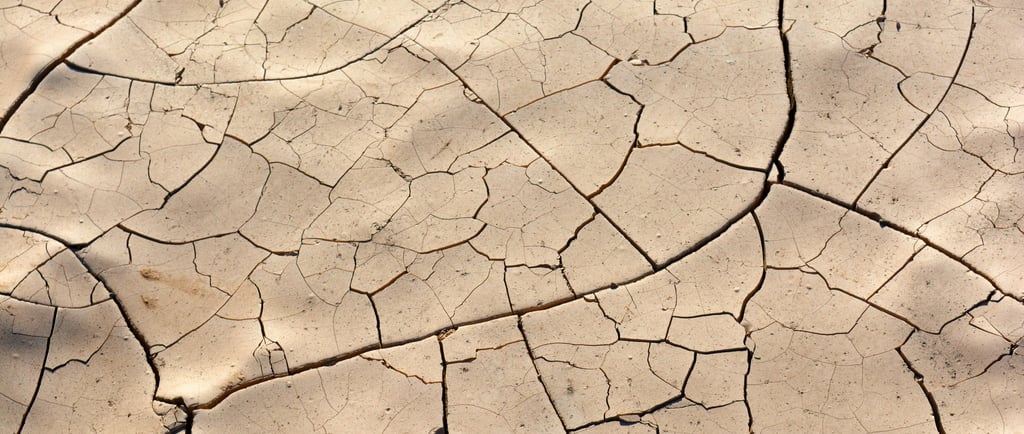Signs of Dehydration and How to Avoid It
WATER SURVIVAL


Why Dehydration Is So Dangerous
Water is the fuel that keeps every system in your body working. Without it, your blood thickens, your organs slow, and your brain struggles to think clearly. In survival situations, dehydration is one of the fastest killers. You may survive weeks without food, but only days without water. Recognizing dehydration early and preventing it is as important as finding food or shelter.
Early Warning Signs
Dehydration does not start with collapse. It begins with small, easy-to-miss signals. Thirst is the first clue, but by the time you feel very thirsty, your body is already low on fluids. Other early symptoms include dry mouth, sticky saliva, and darker urine. Mild headaches, irritability, or slight dizziness also indicate the early stages. Paying attention to these signals lets you act before the problem becomes dangerous.
Progressing Into Serious Danger
As dehydration worsens, the signs become harder to ignore. Urine output drops sharply, skin becomes dry, and lips may crack. Muscles cramp, and your heart begins to race as your body struggles to pump thickening blood. Confusion sets in, and decision-making falters. Severe dehydration can cause fainting, delirium, and eventually organ failure. In a survival setting, losing your ability to think clearly is often fatal, since mistakes compound quickly.
Factors That Speed Up Dehydration
Heat and physical exertion are the most obvious culprits. Sweating drains your body faster than you realize, even when the air feels dry. Cold weather can be equally dangerous, since people often forget to drink when they are not sweating visibly. Wind, altitude, and illness such as diarrhea also accelerate fluid loss. In conflict zones or emergencies, stress and fear can dehydrate you through rapid breathing and sweating.
Conserving Body Water
Avoiding dehydration is not only about drinking, it is also about conserving what you already have. Rest during the hottest part of the day, move in the shade, and cover exposed skin with light clothing. Breathing through your nose instead of your mouth reduces water loss. In cold environments, insulate well and avoid overexertion, since sweat that freezes wastes both water and body heat. Small behavioral changes can save liters of water over time.
Smart Drinking Habits
When water is limited, sip regularly instead of gulping large amounts all at once. Frequent small drinks keep your body hydrated more efficiently. Avoid alcohol, coffee, or seawater, which increase dehydration. If you have enough supply, aim for clear or pale yellow urine as a sign of good hydration. When resources are scarce, balance drinking with conservation, but never delay so long that your body reaches critical levels.
Food as a Source of Water
Some foods contain valuable fluids. Fruits, berries, and even some wild plants provide hydration in small amounts. In deserts or jungles, vines, cactus pads, and coconuts can offer water-rich sources. In urban ruins, canned fruits and vegetables contain liquid that can be as lifesaving as the food itself. While these should never replace direct drinking water, they help stretch your supply.
The Role of Electrolytes
Sweat does not only remove water, it also takes away salts your body needs. Drinking only plain water in large amounts after heavy sweating can sometimes cause imbalance, leading to weakness or confusion. If you have access to oral rehydration salts, sports drinks, or even homemade solutions with a pinch of salt and sugar in water, use them to restore balance. In nature, certain foods like nuts or salty plants can also help.
Avoiding Risky Sources
In desperation, people often drink unsafe water without thinking. While survival sometimes requires risk, untreated water can cause vomiting or diarrhea, which dehydrates you faster. Always filter, boil, or chemically treat water before drinking whenever possible. If you must take the risk, start with small amounts to test your body’s reaction. Prevention is always safer than cure.
Staying Ahead of the Problem
Dehydration is easier to prevent than to fix. By monitoring your body, adjusting your activity, and drinking wisely, you can stay ahead of danger. Every drop of water you save and every smart habit you practice extends your survival. Water is not just a resource, it is life itself. Knowing how to recognize the signs of dehydration and stop it in its tracks ensures your strength, your clarity, and your chance of making it through.